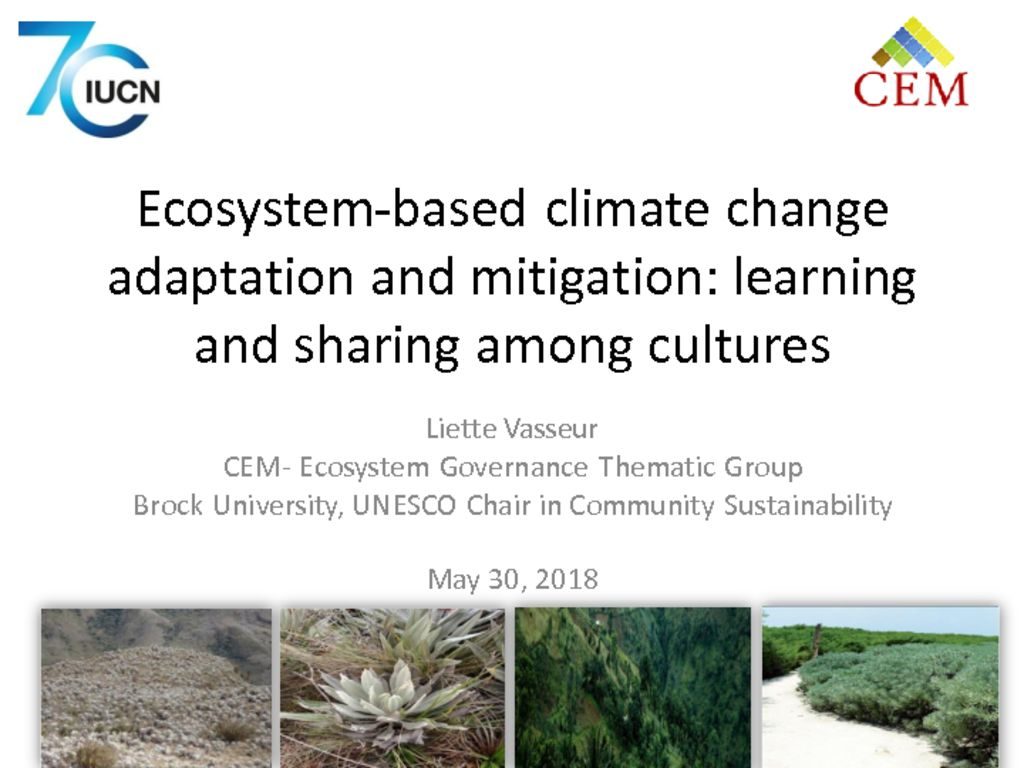24 May Ecosystem-Based Climate Change Adaptation and Mitigation
Ecosystem-based adaptation (EbA) offers a valuable yet under-utilized approach for climate change adaptation and mitigation, complementing traditional actions such as infrastructure development. EbA uses biodiversity and ecosystem services as part of an overall strategy to help communities adapt to climate change at local, national, regional or global levels. As part of nature-based solutions, appropriately designed EbA initiatives can also contribute to climate change mitigation by reducing emissions from ecosystem loss and degradation, and enhancing carbon sequestration. Since historical times, human communities have had to adapt to changing climate and several of them have maintained their own practices over centuries. Many cultures across the world have already enhanced their adaptive capacities to respond to climate change challenges using their own traditional knowledge and cultural practices.
It is time to examine what we have learned from various cultures and reevaluate the principles of ecosystem-based adaptation based on such experiences. For example, the importance of the roles of the community and their level of governance has been underlined as essential for effective EbA. The workshop provided an opportunity to discuss the principles through presentations of a few projects with the aim of gaining insight through discussion with conference attendees, which helped to further inform ecosystem-based climate change adaptation and mitigation.
Key Themes:
Factors of Success in Community Conservation, Wildlife & Fisheries, Climate & Environmental Changes
Presenters:
Liette Vasseur (Brock University)
Darwin Horning (University of Northern British Columbia)
Pam McElwee (Rutgers University)



